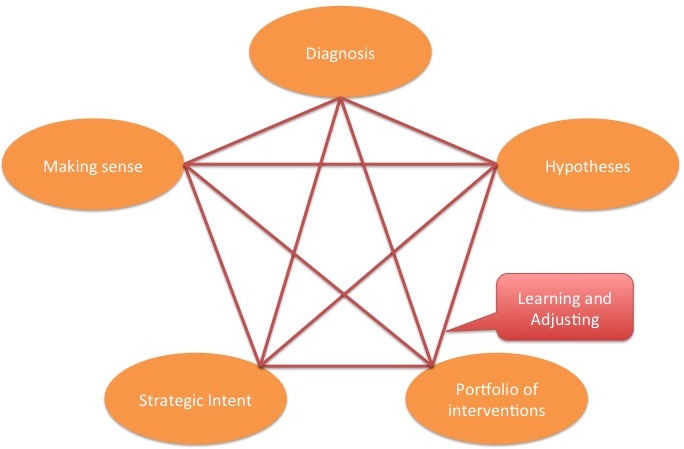When watching one of my favourite TV series I was reminded that in life we can recognise and navigate complexity and uncertainty. When we enter into relationships, get married, have kids, we face lots of uncertainties. Is it the right partner for us? How do I want to raise my kids so they can make the most of their lives? These are questions no-one can answer with any amount of certainty – no quantitative objectives or milestones are fixed. Yet, we still manage to make decisions by using a mix of logical argument and a good portion of intuition. In the end, there are no right answers and we will deal with the consequences of our decisions once we can sense them. We continuously work on our relationships to improve them or in the worst case split up. We navigate the uncertainties of raising children and they grow up eventually. While this approach is natural and works well in our lives, we somehow refuse to buy into it for most aspects in our work. There, we try to find certainty, hypothesise linear causal relationships that allow for plans with milestones and outcomes. When applying this thinking to a complex problem like organising a children’s party it sounds ridiculous and we laugh about it. But we still use the same logic when we try to improve the workings of an economy or a market, when trying to change the behaviour of companies and poor people, or even when trying to improve the empowerment of women in business. Nobody laughs there.
Continue reading
Tag Archives: project management
An alternative to a Theory of Change approach
I have been blogging quite extensively about the Theory of Change (ToC) approach in recent months. My blog posts reflect a process that I have been going through as part of my different work engagements: adapt ToC approaches to be more sensitive to the complexities development programmes face in their day-to-day work.

Different phases of Systemic Insight
In parallel, with my colleagues at Mesopartner we keep doing research on understanding complex realities and our human reaction to them based on cognitive science, understanding the process of economic change, making decisions under conditions of uncertainty, and managing highly resilient organisations. In these contexts, ToC has limited applicability and a number of drawbacks. Therefore, we have been working on an alternative approach to the ToC approach which we built from the ground up based on our growing understanding of how complex systems work and how involved actors can lead a process of exploration and change. The approach is called Systemic Insight. Continue reading
